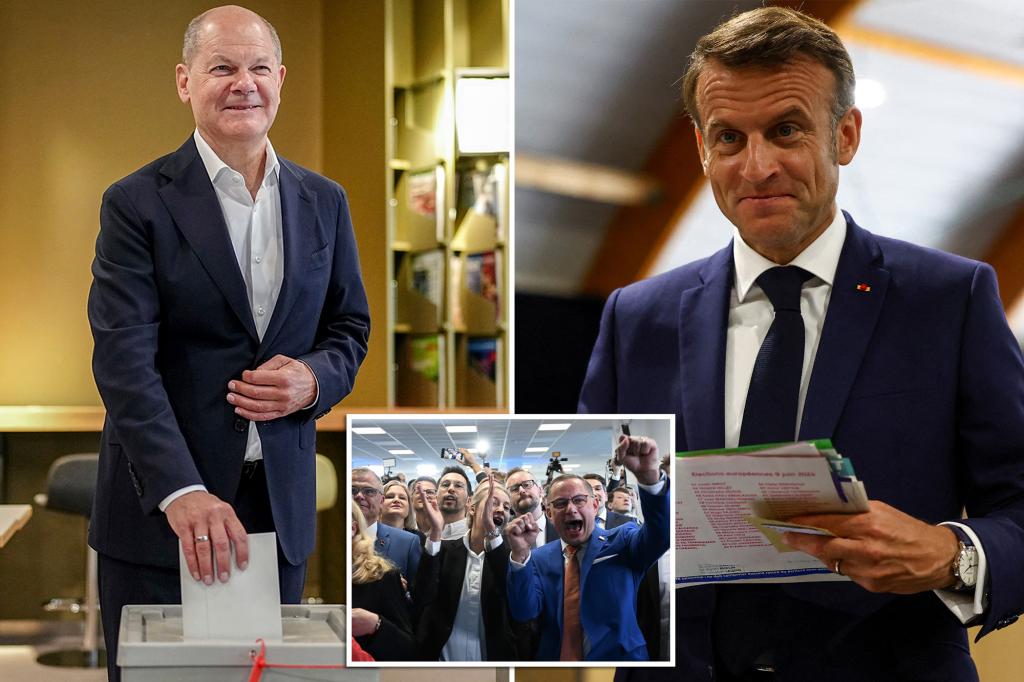The European Parliament elections on Sunday saw a surge in support for right-wing populist parties across the EU, indicating widespread voter dissatisfaction. In France, President Emmanuel Macron faced a humiliating defeat at the polls, leading to his decision to dissolve the National Assembly and call for new elections. Marine Le Pen’s National Rally party emerged with at least 31% of the votes, significantly outperforming Macron’s centrist party. Le Pen emphasized the French people’s rejection of the current European construction, advocating for more influence, identity, and freedom.
Similarly, in Germany, the right-wing Alternative for Germany (AfD) party secured second place in the polls with 16.5% of the vote, surpassing Chancellor Olaf Scholz’s party. The governing coalition parties in Germany, known for their left-of-center policies, struggled to secure a combined 30% of votes. The Greens, a key party in Scholz’s coalition, only managed to garner 12% of the vote. Alice Weidel, co-head of the AfD, highlighted her party’s success despite controversies and negative headlines, attributing it to a growing anti-European sentiment and frustration with bureaucracy from Brussels.
The shift to the right was also visible in the Netherlands, where Prime Minister Geert Wilders’ anti-immigrant populist party gained seats in the European Parliament. While liberal parties secured the most votes, the nationalist victories across Europe signal a collective move towards conservatism. Analysts predict that these wins could lead to fragmentation within the EU and hinder its ability to pass legislation. In Belgium, Prime Minister Alexander De Croo announced his resignation following an election that saw a decline in support for his center-right party.
As the results of the European Parliament elections continue to emerge, projections suggest a similar trend in other EU countries, including Austria where the far-right Freedom Party emerged as the top contender. The increased presence of hard-right lawmakers in the European Parliament could complicate decision-making processes and potentially stall legislative progress. With EU lawmakers playing a crucial role in determining financial rules, climate policies, and other important issues affecting the bloc, the outcome of these elections may have significant implications for the future of the EU as a whole. Additionally, the Parliament is responsible for approving the EU budget and overseeing aid to Ukraine in its conflict with Russia.


